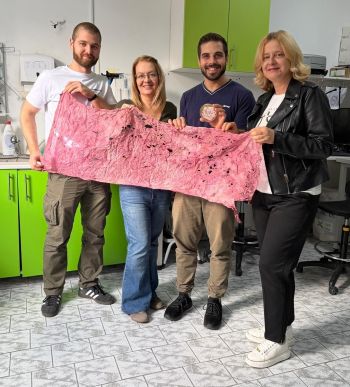
Bacteria vs. Textile Waste: A Greener Way to Break Down Fabrics
Scientists are exploring eco-friendly ways to tackle textile waste using Streptomyces bacteria. In compost experiments, certain strains helped break down both synthetic fabrics like nylon blends and natural ones like cotton. One standout strain, BPS43, exhibited increased degradation of synthetic material and showed genetic potential for breaking down plastics. This research opens doors to greener methods of recycling clothes and reducing fabric pollution.
This research is part of the doctoral dissertation of Vukašin Janković and was derived from the project “EcoPlastiC – Eco conversion of lower grade PET and mixed recalcitrant PET plastic waste into high performing biopolymers,” funded by the European Commission under the EIC Pathfinder Open call. The study was carried out in collaboration with colleagues from the Faculty of Technology and Metallurgy, University of Belgrade.


